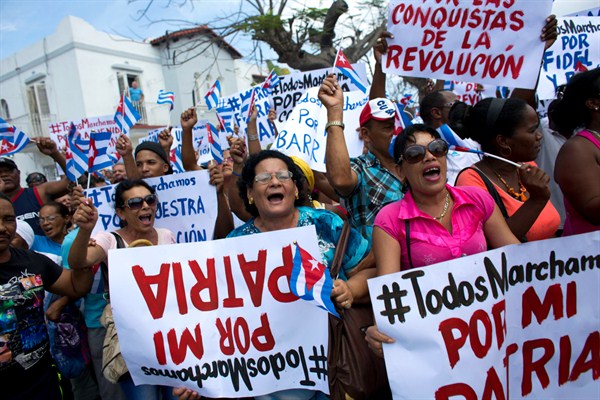Expectations for change in Cuba grew following the historic thaw in U.S.-Cuban relations that began in December 2014, and gained momentum with U.S. President Barack Obama’s equally historic visit to the island in March 2016. How have these epoch-making transformations altered Cuba’s newly dynamic domestic reality, which is often inaccurately assumed to be both monolithic and monochromatic?
On one hand, Havana has responded by circling the wagons of the state and doubling down on political centralization under President Raul Castro and los historicos, as the old-guard revolutionaries are known. On the other, a variety of actors in Cuban society—including political dissidents, independent digital journalists and the island’s innovative entrepreneurs—have staked increasingly bold claims to the public spaces that have emerged in recent years as a result of Havana’s limited economic reforms.
Those concerned with U.S.-Cuban relations at the formal, state-to-state level would do well to watch these emergent actors, activists and entrepreneurs as well. How they push for, respond to and take advantage of changes from above will have a major impact on the pace and direction of future change on the island.

